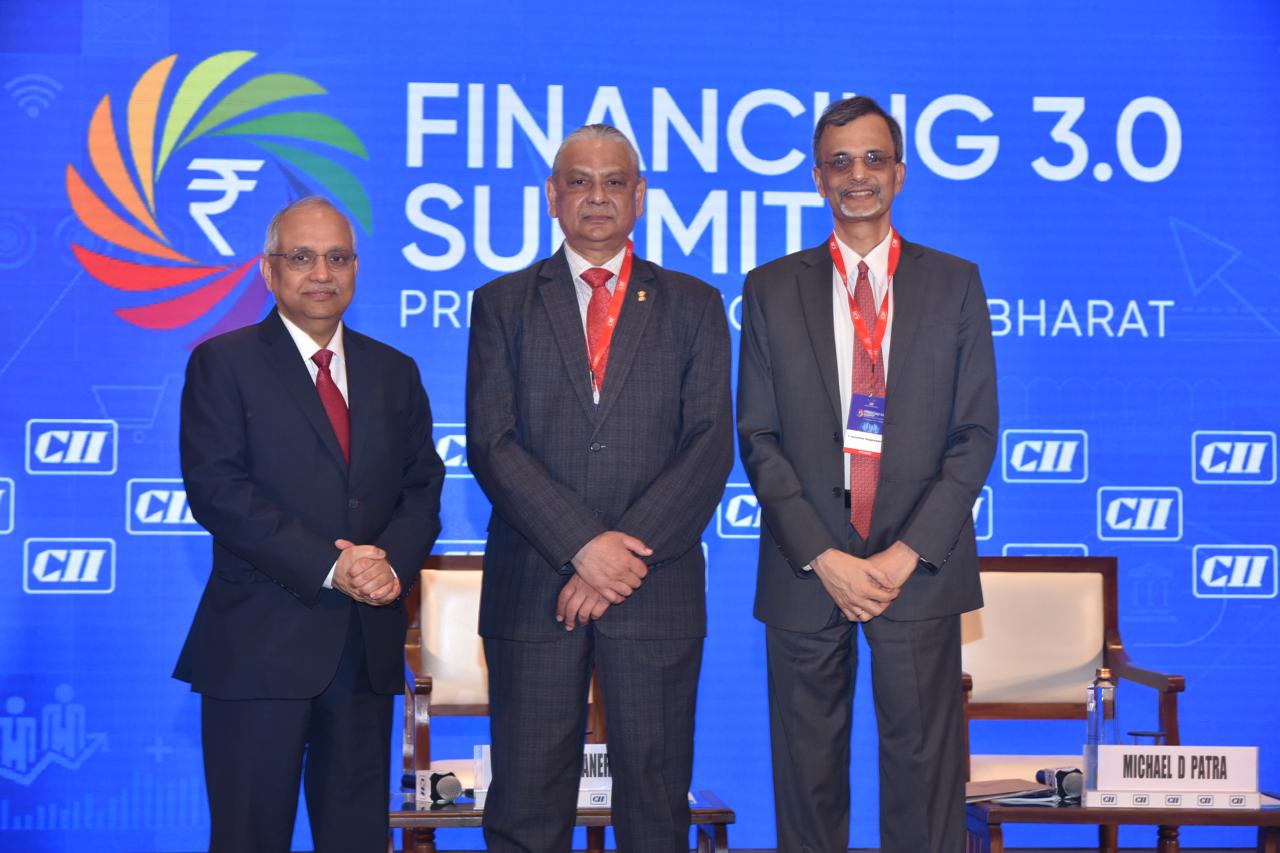The role of finance indisputable in shaping India’s growth story: Dr Michael D Patra, Deputy Governor, Reserve Bank of India

FinTech BizNews Service
Mumbai, September 3, 2024: The well developed and robust finance sector would be pivotal for underwriting India’s inclusive and sustainable future due to its pivotal role in facilitating capital accumulation, lowering transactions costs, managing risks, among others. While India depends largely on domestic resources for its growth, external investments play an important supplementary role in driving economic growth and prosperity. This was stated by Dr Michael D Patra, Deputy Governor, Reserve Bank of India (RBI) during his Keynote address on “The Role of the External Sector in Financing India’s Growth Aspirations” of the Financing 3.0 Summit organised by Confederation of Indian Industry (CII) at Mumbai today.
During his address, Dr Patra delved into India’s remarkable growth story and the fact that India is riding on a cusp of a distinct demographic advantage. He said that a productive workforce is critical for value creation in an economy while capital would play an important supportive role. And in this context, India’s rich human capital-its rising STEM graduates, leadership in IT & communications, start-up ecosystem, - provides the nation with an identified distinctness and primacy of place in the world.
India is also upskilling itself to take advantage of its human capital. And as India emerges as a manufacturing hub and there is a commensurate rise in employment, the country would witness a rise in per capita income and economic prosperity, he said.
Dr Patra maintained that the role of finance in shaping and reshaping India’s future is indisputable as there is a deep nexus between finance and growth. In India, it is household savings which have largely financed the investment requirements of the economy and would continue to do so in the future due to rising productivity and thrift of the workforce. At the same time, financial intermediation would become more diversified, and the leveraging of technology solutions would help to provide the lendable resources to facilitate the growing investment needs.
Over time, India would also witness a rise in the efficiency of capital and its incremental capital-output ratio, which has been around 4.3 for the last three years would get reduced to around 3-4 in the coming years. Our savings and investment ratios are also set to rise and would be closer to that achieved during the first decade of the present millennium. This would be premised on a rise in savings of household & businesses and the reduction in government dissaving through fiscal discipline, Dr Michael maintained.
The Deputy Governor proceeded with his address by illustrating the five specific sectors where finance would play a significant role in supporting India’s ascent as a rising power. The first is for financing infrastructure and reducing the high infrastructure gap for which he sought private sector participation. Second is MSME sector which continues to be underserved. He underscored the role of banks, fintech and NBFCs to cater to the needs of the sector.
Third is the need for finance for skilling, reskilling and upskilling for which he emphasised on support from the private sector, issue of bonds, skill vouchers, venture capital, e-learning centres, start-ups among others. Fourth is climate finance for funding sustainability initiatives such as the green hydrogen mission and net zero goals. He advocated the use of sovereign green bonds and mentioned that the government and RBI had also taken steps such as spelling out the disclosure norms for climate financing, 100% FDI for renewable energy under automatic route among others to drive the sustainability mission and lastly is the requirement for finance to facilitate India’s digitisation journey.
Dr Patra concluded by underpinning the role of the corporate bond market in deepening the sector and eluded that while external finance is crucial to accelerate India’s growth momentum, its absorption would be contingent on reforms in the financial sector.
Mr Chandrajit Banerjee, Director General, CII, during his welcome address, lauded the performance of India’s external sector and underscored the role of RBI in ensuring that its financing is stable, sustainable, and aligned with the country's economic policies. Greater investments can be particularly useful to garner more financing in physical infrastructure, components for digital economy, as well as emerging sectors, like the renewable energy, warehousing, semiconductor ecosystem, data centres, etc, according to Mr Banerjee.